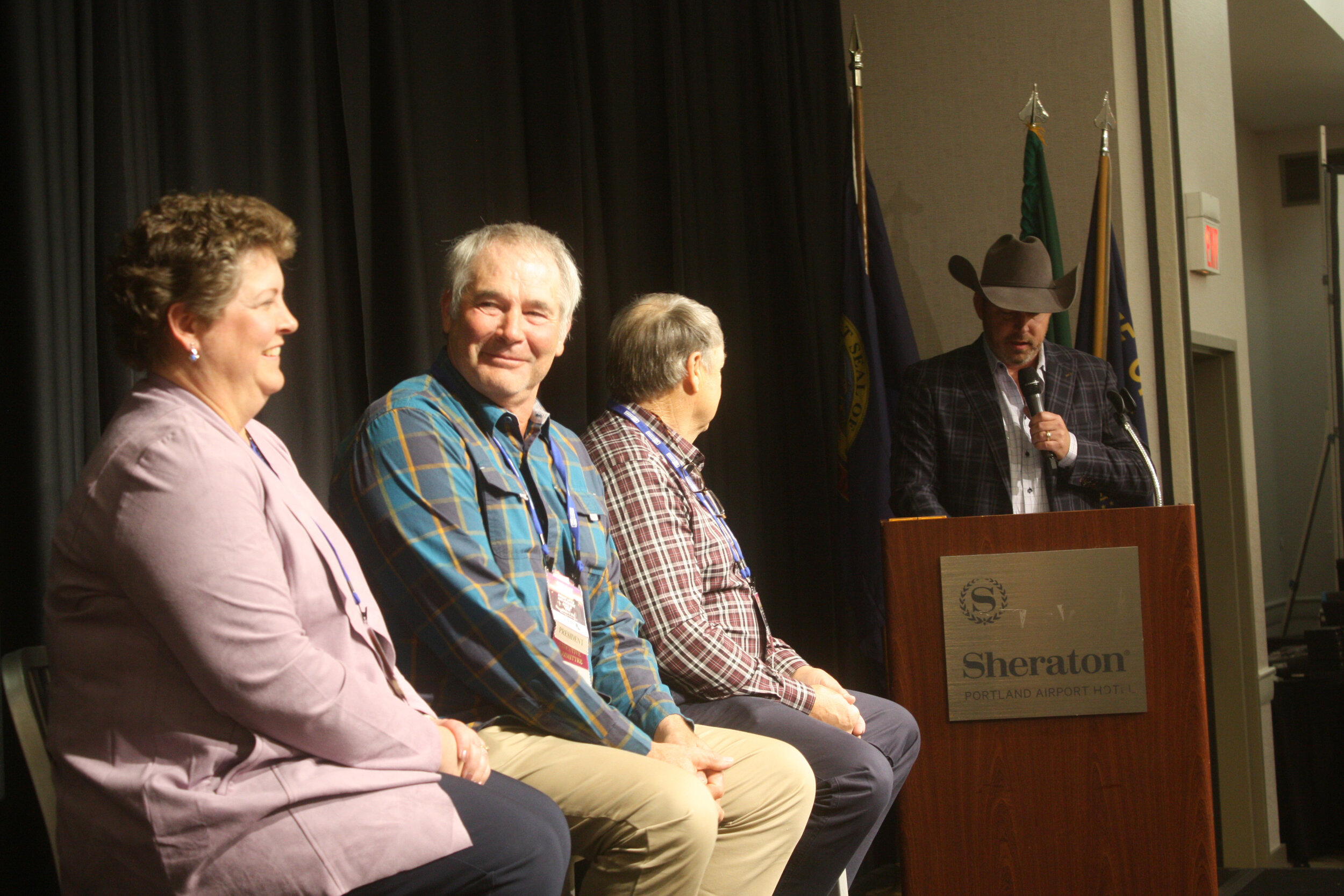A Family Tradition, Sustained by the Snake River
Marci Green | Fairfield, Washington
Marci Green’s family farm unfolds near the Washington-Idaho border, 25 miles south of Spokane. It’s a land of rolling hills, green and gold, covered with wheat.
Seven generations of her family have grown up here and grown wheat here. Her family – including husband Lonnie and sons Derek and Jordan – take care of their environment as if their lives and rural communities depend on it. Because they do.
“This farm has been in my family since 1878. It’s important to us that we are able to sustain that. It’s something we’re always conscious of. We want to take care of this earth we live on, to be good stewards of the land and air and water.”
Protecting the land, water and air
Green View Farms, Inc. practices direct-seeding farming, which helps prevent topsoil erosion into the Spokane River, uses less fuel and generates fewer carbon emissions. Similarly, to get their soft white wheat to market, Marci’s family relies on river barging – the most fuel-efficient and environmentally friendly option. Barging is made possible by the Snake River dams.
Farmers like Marci’s family are key contributors to the Northwest economy. Wheat farmers alone support more than 8,000 jobs in Washington, including their own.
The greenest way to get goods to market
From Marci’s family farm, trucks drive the wheat 80 miles south to the Snake River, where it's poured into barges. Tugs push the barges down the Snake through locks at several dams, on their way to international ports in Portland and Vancouver.
Because the Snake River dams make the river navigable for barges, they are crucial to keeping carbon emissions as low as possible as wheat travels from farm to market. Barges move more wheat, using less fuel, than trucks or rail cars.
“People say, take out the dams to help the environment. But without them we’d be using more fossil fuels and putting more carbon back into the atmosphere.”






Dam removal threatens a region’s heritage and way of life
Without the dams, barges could no longer travel the river. Farmers like Marci would need 35,000 additional rail cars or 135,000 semi-trucks to transport their wheat. These cars and trains would add tons of carbon to Northwest skies.
And without a navigable Snake River, it would get harder for farmers like Marci to hold on to what they have nurtured and preserved for generations – this land, their family legacy, and a Northwest way of life.
5 things about Marci Green
There are no houses within a mile of Marci’s farmhouse – but she can get to Spokane by car in half an hour.
Her great-great-great grandfather Rufus Kegley was a member of the Washington State Legislature in the 1890s.
She plays piano for her church in Fairfield.
The last book she read was the autobiography of Coretta Scott King.
Marci, who has a bachelor’s degree in accounting and business management from Whitworth University, was Chief Financial Officer of a community bank until her father retired from the family farm, and she returned to help her husband Lonnie run it.

